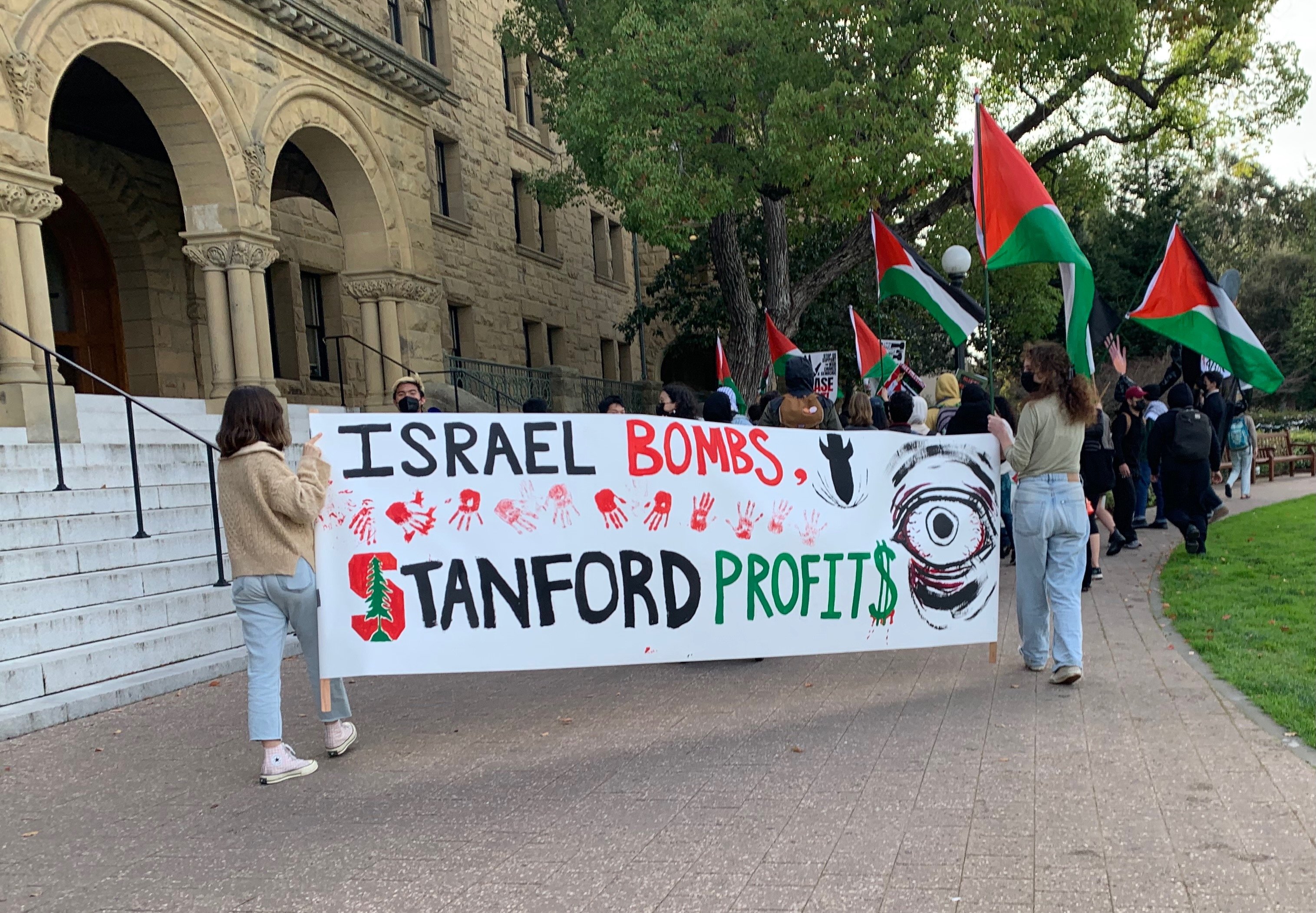Over the past few weeks, our administration has reiterated its disapproval of the encampment and the need for “constructive dialogue.” They praised a course titled “Democracy and Disagreement” for holding a session with Alon Tal, a former member of the Israeli parliament (the Knesset), and Salam Fayyad, a former prime minister of the Palestinian Authority. In response to the encampment’s demands for negotiation, the administration has expressed a willingness to meet and talk, but no willingness to negotiate.
Forms of dialogue may exist on campus. But what does it mean to have constructive dialogue?
The Democracy and Disagreement session with Alon Tal and Salam Fayyad cannot qualify as constructive dialogue. The Palestinian Authority (PA) is widely seen by the people of Palestine as an extension of the Israeli occupation with a Palestinian face. Only 14% of Palestinians express satisfaction with the role of the PA, according to the Palestinian Center for Policy and Survey Research (PCPSR). Hence, a dialogue between a former member of the Israeli parliament and a former prime minister of the Palestinian Authority is no dialogue at all, but a monologue.
The best way to hold a constructive dialogue, thus, is with representatives of the encampment.
While the administration expressed a willingness to meet, what would such a meeting entail? The previous sit-in had requested numerous meetings with the administration, which were ignored on all but two occasions. This happened as our Palestinian members watched numerous family and friends become martyred, the homes and neighborhoods they grew up in become destroyed, and their memories buried under the rubble.
When the administration finally met with members of the Sit-In to Stop Genocide, administrators were deliberately vague, shut down discussion before it occurred and refused to put statements in writing. At the end of the first sit-in, representatives agreed to take down the sit-in in exchange for good faith negotiations with the administration towards progress on demands, which were not met. This manipulative, fruitless conversation is not dialogue. The administration ordering the sit-in to be taken down amid a shooting threat, when students were not permitted to be present in White Plaza further demonstrated the administration’s tendency toward covert and disingenuous actions.
Recently, a new encampment arose to revive the demands of the first sit-in, primarily divestment from companies complicit in Israeli apartheid. Once again, to meet the demands, students demanded negotiation. When the administration offered to meet, students wanted to avoid the manipulative, fruitless conversations of the past. Hence, they decided upon preconditions, including:
- Disclosure of Stanford University’s past fiscal year (2022), including, but not limited to, the University’s investments.
- Required referendum on divestment that will be voted on at the upcoming June 11 Board of Trustees meeting, which must be open to the public.
The administration responded by reiterating its willingness to meet but stated that the meeting would not be for negotiations, because they are unable to accommodate all the students’ conditions. However, their encouragement of constructive dialogue requires meeting these conditions.
Dialogue necessitates disclosure and transparency. As students who pay tuition or contribute labor, we are stakeholders in the university and should be able to express our views regarding the allocation of our endowment. The only way that can happen is through disclosure, which numerous universities have committed to for the sake of transparency, independent of the situation in Palestine. If dialogue is like passing a frisbee back and forth, the administration gatekeeping our investments is like refusing to even show us the frisbee. Knowledge of the University’s investments is an obvious prerequisite to dialogue regarding the investments.
For dialogue to be constructive, it must have a material impact, such as divestment, as opposed to abstract words. While there is a formal, drawn-out process for divestment, the urgency of the ongoing atrocities demands an accelerated approach, namely a vote on divestment at the upcoming June 11 Board of Trustees meeting. By refusing to hold a prompt public vote, the administration reveals that their aims in dialogue are not constructive. Rather, their desire to talk is purely performative, meant to pacify the encampment rather than engage with their demands.
Listening is an essential component of dialogue, and if the administration has listened over the past seven months, they would hear a desperate sense of urgency. Israeli forces have killed over 35,000 people in Gaza, including dozens of family members of our Palestinian classmates.
Finally, dialogue requires the Board of Trustees’ vote on divestment to be public in order to engage students, who look forward to such actionable dialogue. 72.86% of undergraduate voters and 74.64% of graduate students voters supported the ASSU divestment referendum. Students are clearly passionate about this issue and anxious for constructive dialogue toward concrete goals. The question lies in whether administrators are willing to engage in such constructive dialogue, or if they will continue their one-sided monologue, refusing to listen and take urgent, constructive action.
For the University to engage in constructive dialogue, they must be willing to have something real come of it. That means that Stanford must disclose its investments and the administration must call for a public vote on divestment at the upcoming Board of Trustees meeting. If the administration does not meet these conditions, their calls for constructive dialogue are nothing more than empty, hypocritical words.
Brian Liu is a master’s student in computational and mathematical engineering.
